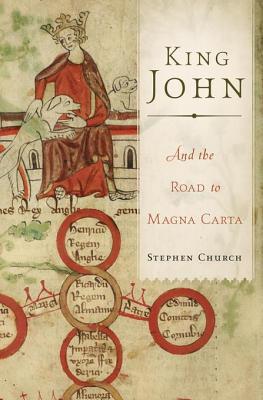
King John
And the Road to Magna Carta
کتاب های مرتبط
- اطلاعات
- نقد و بررسی
- دیدگاه کاربران
نقد و بررسی

February 23, 2015
Medieval historian Church (The Household Knights of King John), a noted scholar of the reign of King John, traces the steps and missteps that led to the defeat of the king and the creation of the Magna Carta. Church begins in John’s childhood, looking for potential roots of the failures in judgment that caused his downfall. John’s role during the reign of his brother, Richard the Lionheart, receives meticulous treatment, and Church vividly describes the machinations, intrigue, and duplicity of court life surrounding the young count. In Church’s view, John’s worst fault was that he was “a man all too willing to play at brinkmanship, but who ultimately lacked the fine judgment to know when he had gone too far.” This trait revealed itself many times, especially in John’s demand for uncustomary tithes and his alienation of his English subjects, who refused to support his foreign wars. John was also unfortunate in that his opponents were strong, especially King Phillip II of France, who took over much of John’s French territory, and Pope Innocent III, the most powerful of the medieval popes, with whom John refused to compromise. Church dramatically relates the tragic twists of the king’s fall in this story of power gone awry, with echoes that resonate in the present.

January 15, 2015
Reigning from 1199 to 1216, King John's villainy remains a mainstay of popular media. Church (Medieval History/Univ. of East Anglia; The Household Knights of King John, 1999) does not downplay his defects in this scholarly but readable biography.John's father, Henry II (1133-1189), was a tough act to follow. Competent and pugnacious, he vastly expanded the realm but could not control John's elder brothers, who regularly fought their father and among each other. After Henry's death, Richard I seized the throne and proclaimed his nephew, Arthur, his successor. Church's account of John's 10 years under Richard is an often numbing series of political intrigues, wars, betrayals and negotiations, during which he won his brother's trust. After Richard's sudden death, John prevailed over Arthur's supporters and seemed secure in an empire that stretched from Scotland to the Pyrenees. Unfortunately, he faced a French king, Philip Augustus, who was determined to regain his English-ruled provinces. He quickly succeeded in Normandy, and John's talent for offending French allies made matters worse. He returned to England in 1203, spending the next 10 years trying to recover these lands while also fighting the Scots, Irish and Welsh and his increasingly hostile barons opposed to foreign service, high and perhaps illegal taxation, and his highhanded methods. Their rebellion resulted in John signing the iconic Magna Carta in 1215. However, neither John nor the barons made much of an effort to honor the peace accord, and civil war was raging when John died the following year. Church sticks close to the evidence, almost all government records and surviving chronicles devoted to the deeds of great men. The result is not a page-turner but an insightful, likely definitive, biography.
COPYRIGHT(2015) Kirkus Reviews, ALL RIGHTS RESERVED.

March 1, 2015
Church (medieval history, Univ. of London; The Household Knights of King John) chronicles the life of the infamous King John (r. 1199-1216). As the fifth son of King Henry II, John did not expect to wear the crown, but in 1199, following the death of his brother, Richard the Lionheart, John assumed the role of ruler. He was not an effective king, however, as he lost all of the monarchy's English-owned lands in France, involved the kingdom in ruinous financial wars overseas, and caused a civil war in England as well as the issuance of an unprecedented document--the Magna Carta (1215), which celebrates its 800th anniversary this year. Church aims to place John and the events of his life within their proper historical context. This approach allows the author to show that the view of John as an evil tyrant is an oversimplification and does not accurately take into account his complex personality nor the politics and people of the time. Yet Church does not apologize for the ruler's failings; rather, the nuanced perspective he provides of his subject is meant to help with the much-needed reevaluation of a king whose reign is important to English history. VERDICT Highly recommended for anyone interested in medieval history or history in general.--Laura Hiatt-Smith, Douglas Cty. Libs., CO
Copyright 2015 Library Journal, LLC Used with permission.

























دیدگاه کاربران